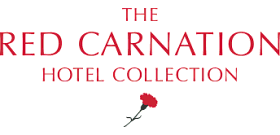 How is it opening a safari lodge during the pandemic
How is it opening a safari lodge during the pandemic
Red Carnation Hotels, part of the Travel Corporation group of companies founded by South Africa natives Stanley and Beatrice Tollman, recently opened its first safari camp, the luxury Xigera in Botswana. Senior editor Jeri Clausing talked with the Tollman's son, TTC CEO Brett Tollman, about the new property and his outlook for travel.
Q: You are recently back from a trip to South Africa and Xigera. Tell me about the new property.
A: Phenomenal. It's been a lifetime vision of the family to create our own safari lodge. For my father, what he particularly wanted to create was the opportunity to go on safari with the family. That's something we've done over the years. Every summer we take a number of our children, all the siblings, my parents and usually a few friends and take over one of the Wilderness Safaris camps. Now it's that opportunity to bring a Tollman safari experience to those who want to try it.
Q: How big is the lodge?
A: Twelve keys. Eleven of the same, and then one will take a family. It's got two bedrooms attached. They're massive. We felt that in the suite there should be everything you would want in an Aman-type of property or any luxury hotel. You've got this large bathroom with an indoor and outdoor shower, a couples bath. Each suite is fully air-conditioned. It's got very powerful WiFi. You've got televisions with satellite-streaming TV.
They are all-enclosed glass and wood structures that then have the tent on top to give a very architecturally pleasing look and feel, as if it was a normal tented safari camp. The tents are designed like the wings of some of the birds in the area. And we have over 18 artists that have been used from throughout South Africa, Botswana and other parts of Africa that are part of the design of the camp.
Q: Tell me a little more about the experience.
A: Part of the experience is when you arrive, whenever you're ready, you'll sit down with one of our eight guides and talk about what are your goals, what do you want to do and see while you're here. One of the trends you're seeing and hearing about is, because of Covid, people coming to the Okavango Delta and other safari camps don't necessarily want to do a network; they'd rather just stay in one place for seven days. Then you can really immerse yourself there without extra [Covid] tests.
And so we're really ensuring that we can keep you occupied for a week. There's a one-hour walking tour of the art around the camp, for example. We're doing [an educational experience] on different animals so people can better understand and get under the skin, so to speak, of the different species in the area. We can do a half-day tracking with one of our guides. You can take a walk through our Tesla battery array and understand how we have a zero footprint. We have a pool and a spa. We wanted to create as much diversity of experiences for people to really relax and enjoy their time there.
Q: How did the pandemic affect the opening?
A: It did delay us by six months due to the border closing between South Africa and Botswana. We basically created a unique bubble there that was monitored by the Botswana government and Army to ensure we didn't bring Covid to the area.
Q: Do you anticipate opening more safari lodges?
A: No. You can only do one of these.
Q: Are people traveling to Africa now?
A: The camp opened in the beginning of December. We've had a number of high-net-worth individuals with their own private planes who've been able to fly directly in. Unfortunately, since the new South African strain [of the coronavirus] has come, most airlines have stopped flying there, which makes it hard to get any volume going. It will take time, but South Africa will reopen.
Q: What's your outlook for global travel and the rest of the Travel Corporation companies this year?
A: We're "cautiously optimistic." We're expecting things to change dramatically in June and July. The problem is right now, it's winter in the northern hemisphere, you've had spikes in cases, you've had these variants. So it's kind of darkest before dawn, is what we're calling it.
